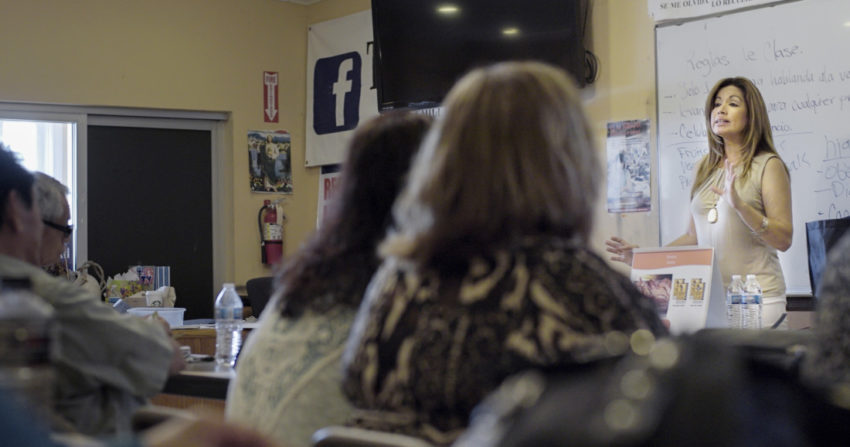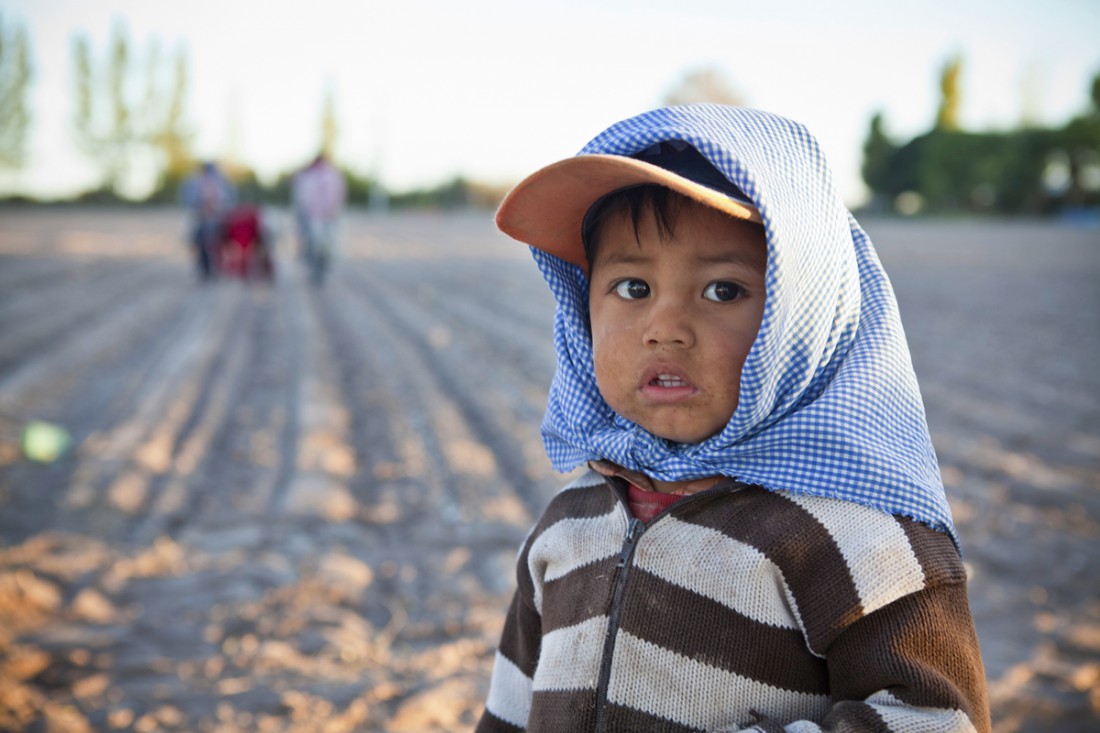
Share On Social!
SaludToday Guest Blogger
UnidosUS, Formerly: National Council of La Raza (NCLR)
The holidays are upon us.
So is the temptation for Latino and all families to eat, drink and be merry—but there are ways to approach the season with an eye toward choosing nutritious food, cooking healthy meals, and increasing physical activity in order to enjoy better health.
These lessons are at the heart of UnidosUS’s Comprando Rico y Sano program.
The program, led by UnidosUS’s Institute for Hispanic Health with support from WalMart Foundation, uses a culturally and linguistically sensitive approach and community health workers—called promotores de salud—from 20 partner groups to reduce local hunger and instill healthy shopping and eating habits among Latinos.
UnidosUS trains the promotores to conduct local small-group educational sessions (charlas), host cooking demonstrations and grocery store tours for local residents, and do outreach through social media and the local news. Participants learn how to read food nutrition labels, choose produce and other food that is affordable and high-nutrient, and prepare recipes with reasonable portion sizes and minimal salt, sugar, and fat.
These sessions often feature lively discussions about MiPlato, some group stretching exercises, and recipe trading.
UnidosUS’s community partners have embraced the goal of helping to improve the health of their constituents, with some also offering fun physical activity classes or forming walking groups, and at least one—Eastmont Community Center in Los Angeles—launching a community garden where Latino families tend to vegetable crops and share the harvest.
Comprando Rico y Sano is about more than just sound nutrition.
 With hunger being a reality in far too many Hispanic households, the promotores also assist eligible Latinos who do not have enough to eat to enroll in the Supplemental Nutrition Assistance Program (SNAP). Food insecurity affects nearly one in four Latino households, meaning they don’t have enough food for all family members at times during the year due to a lack of money and other resources.
With hunger being a reality in far too many Hispanic households, the promotores also assist eligible Latinos who do not have enough to eat to enroll in the Supplemental Nutrition Assistance Program (SNAP). Food insecurity affects nearly one in four Latino households, meaning they don’t have enough food for all family members at times during the year due to a lack of money and other resources.
Data show that Comprando Rico y Sano is effective. An evaluation of a subsample of 1,885 program participants found that about 55% of participants who had little to no knowledge about healthy eating before participating in a charla were very knowledgeable afterward.
The number of participants who agreed they could make healthier choices by using a grocery list and who intended to prepare healthy meals for their families increased by 45% after attending a charla. Also, a follow-up found a significant increase in fruit and vegetable consumption among those who previously ate two or fewer fruits or vegetables in a week to seven in a week.
Our outreach efforts remain strong. In 2015 alone, UnidosUS and our community partners accomplished the following:
- Reached 4.5 million Latinos with nutrition and SNAP enrollment messages via the news and social media.
- Provided face-to-face nutrition education and SNAP information to 107,806 Latinos.
- Enrolled 26,557 Latinos in SNAP.
- Led cooking demonstrations and grocery store tours for 4,142 Latino participants.
- Trained 229 promotores to implement the program.
While these numbers help in measuring effectiveness, we also hear many heartwarming stories and positive feedback about how this program makes a difference in so many lives.
It is not easy to change our behavior when it comes to healthy eating and physical activity, but by making the right information available and offering hands-on learning, all of us involved in Comprando Rico y Sano hope to improve nutrition, and reduce both hunger and overweight/obesity rates among Latinos.
Explore More:
Maternal & Child HealthBy The Numbers
20.7
percent
of Latino kids have obesity (compared to 11.7% of white kids)



